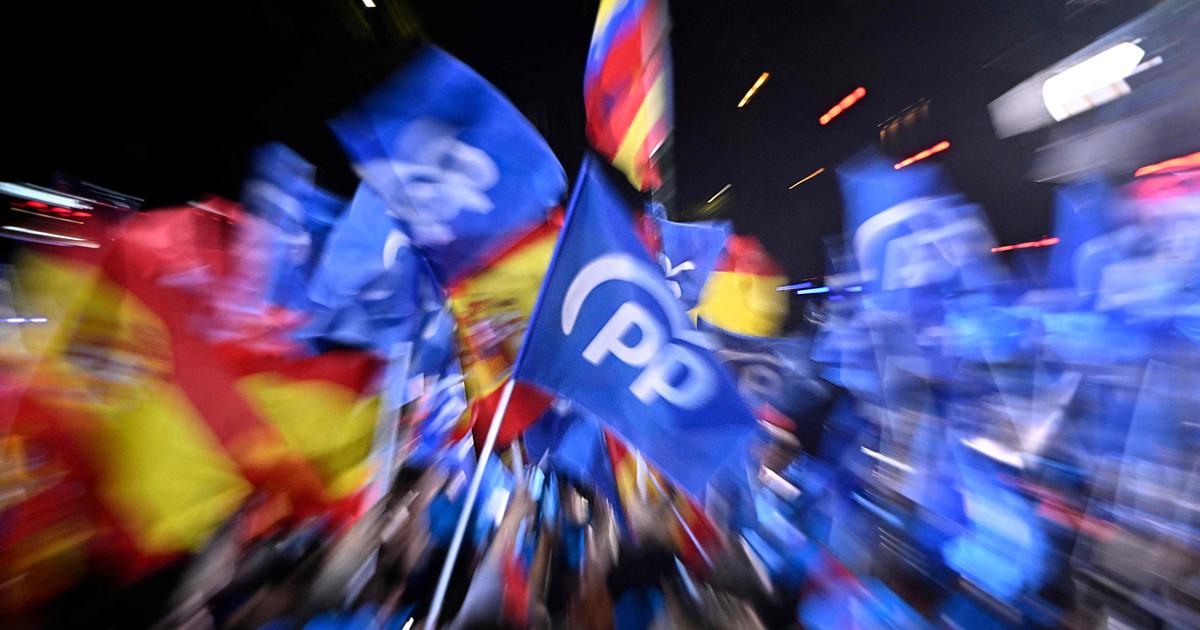Six months before the general elections, the Socialist Party of Prime Minister Pedro Sánchez suffered a very heavy defeat in the municipal and regional elections on Sunday 28th May in Spain, which does not bode well for its stay in power at the end of the year. The leader of the People's Party (PP), the main right-wing opposition party, Alberto Núñez Feijóo, immediately announced "a new political cycle". The PP on Sunday took "a giant step" on the road to lead Alberto Núñez Feijóo to the post of prime minister at the end of the year, added the president of the government of Andalusia, Juan Manuel Moreno Bonilla, a leader of the party.
But besides the PP, the other big winner is the far-right party Vox, already the third political force in Parliament, which, with more than 1.5 million votes in the municipal elections (7.19%), doubled its score in four years and made a spectacular surge in many regional parliaments.
The polls all predicted a right-wing victory in this double municipal and regional elections, but no one expected Pedro Sánchez's Spanish Socialist Workers' Party (PSOE) to suffer such losses. The outgoing head of government of Cantabria (northern Spain), Miguel Ángel Revilla, leader of a small regionalist party allied to the socialists, spoke of a "tide of the right", both of the PP and Vox, while the head of the socialist government of Aragon, Javier Lambán, went so far as to evoke a "tsunami" that swept away the "wall" erected by the socialists. Both were beaten. "The result is not what we hoped for," Socialist Party spokeswoman Pilar Alegría soberly commented, her face defeated.
Vox, a difficult and cumbersome partner
The PP, which had turned these local and regional elections into a national referendum on Pedro Sánchez's policies, achieved virtually all its objectives. It first won the highest number of votes in the municipal elections, more than 7 million (31.5%), some two million more than four years ago, compared to less than 6.3 million (28.1%) for the Spanish Socialist Workers' Party (PSOE) of Mr. Sánchez. Above all, according to public television TVE and the daily El País, the PP has conquered at least six of the ten regions so far led (directly or within a coalition) by the PSOE: the Valencian Community (east), fourth in the country by population, Aragon (centre), Extremadura (west), the Balearic Islands (east), Cantabria and Rioja (north).
But the other side of the coin is that in most of these regions it will need the support of Vox to govern, and this far-right party is already shaping up to be a difficult and cumbersome partner for the PP, as it tries to project a moderate image. Both parties have already governed since last year in one region. The Socialist Party also lost to the PP the town hall of Seville, the largest city in Andalusia (south) and its main municipal stronghold, as well as that of Valencia. And he is not guaranteed to win that of Barcelona, his candidate having only come second behind a separatist.
Like a dress rehearsal before the legislative elections
Sunday's elections covered all 8,131 municipalities, or 35.5 million voters, as well as the assemblies of 12 of the country's 17 autonomous regions. Some 18.3 million voters were affected by this second vote. This double vote was considered as a dress rehearsal before the general elections, the exact date of which is not yet known. Pedro Sánchez's name did not appear on any ballot on Sunday, nor did Alberto Núñez Feijóo's. But the stakes were very high for the two men, who had been heavily involved in the campaign, to the point of making these elections a real first round before the legislative elections at the end of the year. Sánchez had campaigned on his government's record, mainly in the economic field. But Feijóo was also playing very big, because these were the first elections in which he participated as head of the PP. The latter not only retained the two regions it held (Madrid and Murcia), but it won in both the absolute majority. Just like for the town hall of the capital.

